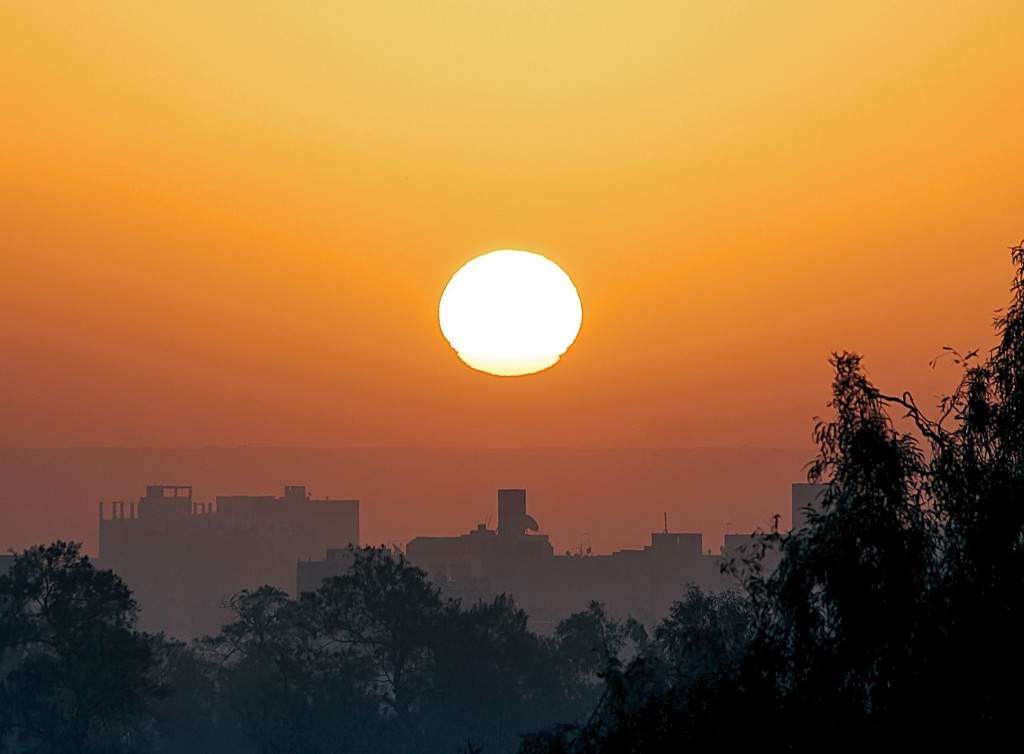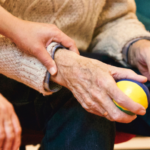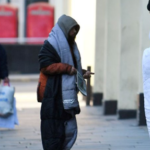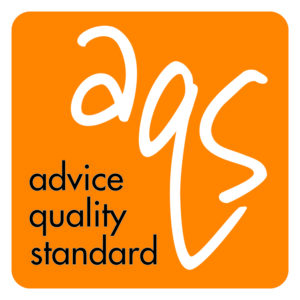As our winter guide for helping rough sleepers in cold weather was so popular, we thought we’d put out a summer version. Heatwaves and hot weather can be very dangerous for people on the streets, so it’s important to be aware of the risks. Here you’ll find some practical ways you can help.
The Dangers of Rough Sleeping
We all know rough sleeping is dangerous and bad for a person’s health. There are risks all year round, but during particularly hot months it is even more crucial to look out for those who are unable to find safe accommodation.
Helping Rough Sleepers
It’s important to remember that even though the government has asked for all rough sleepers to be accommodated during the pandemic, many people are still sleeping rough and new people become homeless every day.
Streetlink
The most important thing to remember, year round, is that rough sleepers can be referred to Streetlink, through their free app or over the phone on 0300 500 0914. This will trigger an alert to local outreach services to go and offer support. Do not assume that someone is already engaging with services. Do not assume that homeless people want to be homeless.
Small Gestures
For those who have access to clean drinking water, it may not occur to them to look out for homeless people who cannot access water as easily. With day centres closed, water fountains turned off for public health reasons, and fewer shops open due to Covid-19, this is more of a problem than ever.
During this pandemic it is crucial that you check that a homeless person is comfortable with being handed water or food before you buy it for them. Respect social distancing as you would with anyone. Some shops will also let you ‘pay ahead’ and allow the homeless person to collect what you have bought for them afterwards, so do check if this is a good solution for you.
Buying someone a bottle of water can make a huge difference, especially on a hot day. Sun hats and sun cream can also protect someone from potentially very dangerous health risks such as heat stroke (see below).
Have a chat
All year round, rough sleepers struggle with loneliness and feelings of being ignored, so a chat (at a safe distance) can make all the difference. In times of extreme weather conditions such as a heatwave, this can be even more important as a rough sleeper’s usual support network may be disrupted and services are less able to keep in touch. This is damaging to mental and physical health – not only does loneliness make many mental health problems more of a struggle, but also regular contact with others is a way of making sure someone’s physical health is ok. If they seem confused and disoriented, it could be a sign of overdose, heat stroke, or severe dehydration, so checking in for a quick chat could help someone avoid a serious health emergency.
Health and First Aid
On that note, this is a brief guide to just a couple of the health risks to rough sleepers in hot weather that might help you recognise if someone needs urgent healthcare assistance. All information is from the NHS website (linked in subheadings).
Especially during the Covid-19 pandemic, it can be very difficult for rough sleepers to access drinking water. Also, they may be out in the sun with no shelter for long hours of the day, often without adequate protection. Furthermore, people experiencing homelessness are more likely to suffer from alcohol and drug addiction which can cause further dehydration.
Spotting a case of serious dehydration could save someone’s life, or protect them from further health issues. According to the NHS, the main symptoms of dehydration are:
- feeling thirsty
- dark yellow and strong-smelling pee
- feeling dizzy or lightheaded
- feeling tired
- a dry mouth, lips and eyes
- peeing little, and fewer than 4 times a day
Members of the public often ignore a homeless person who is lying on the ground, but stopping briefly to check if someone is alright could make a massive difference. If you are able to, and someone seems mildly dehydrated, you could buy them a bottle of water or food with a high water content. You could also have a conversation with them to see if they seem confused or are struggling to stay conscious.
Call an ambulance for someone if:
- they are feeling unusually tired
- they are confused and disorientated
- dizziness doesn’t go away
- they have not peed all day
- their pulse is weak or rapid
- they have fits (seizures)
These can be signs of serious dehydration that need urgent treatment.
Heat Exhaustion and Heat Stroke
Heat exhaustion is usually not too serious if someone can be cooled down in 30 minutes. If it becomes heatstroke, they need to seek urgent medical attention.
Symptoms of heat exhaustion:
- a headache
- dizziness and confusion
- loss of appetite and feeling sick
- excessive sweating and pale, clammy skin
- cramps in the arms, legs and stomach
- fast breathing or pulse
- temperature of 38C or above
- being very thirsty
To cool someone down, follow these 4 steps:
- Move them to a cool place.
- Get them to lie down and raise their feet slightly.
- Get them to drink plenty of water. Sports or rehydration drinks are OK.
- Cool their skin – spray or sponge them with cool water and fan them. Cold packs around the armpits or neck are good, too.
Stay with them until they’re better. If you manage all these, they should feel better in 30 mins. If they don’t, seek urgent medical help (call 999). Other symptoms that mean you should call 999 are:
- feeling unwell after 30 minutes of resting in a cool place and drinking plenty of water
- not sweating even though too hot
- a temperature of 40C or above
- fast breathing or shortness of breath
- feeling confused
- a fit (seizure)
- loss of consciousness
- not responsive
What else can I do?
There are a number of things you can do to help rough sleepers more generally:
- Support local charities. If you can, give money, donations of clothing or food, support local food banks. If you can’t afford to donate, do you have any time you could offer? Could you share their fundraising information online for others?
- Download the Streetlink App on your phone so you can easily report a rough sleeper and get an outreach worker to contact them.
- Write to your MP. At this particular moment, this is crucial. We need to hold the government accountable and make sure they continue to support homeless people after the pandemic. Read this previous blog post to find out more about how rough sleepers risk being abandoned by the government when the pandemic is over. Also in that post you can find a letter template to send to your MP, making it super easy.
- Spread awareness – in winter, we often see campaigns to help rough sleepers which is very important but we often forget about the risks in the summer months. Sharing information (like this blog!) could mean more members of the public are looking out for each other, which can only be good.






